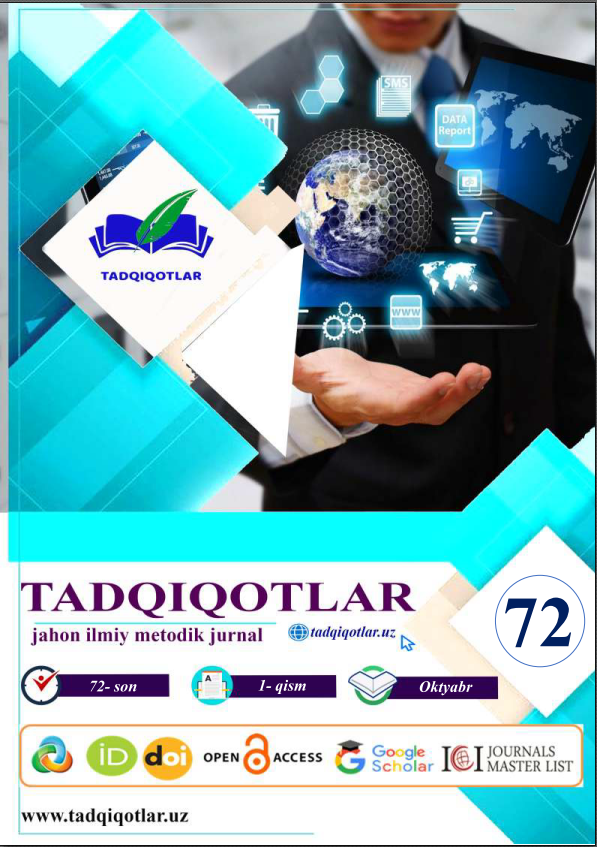ONLINE BOOKING SYSTEMS AND THEIR IMPACT ON TOURISTS’ DECISION-MAKING
Keywords:
Key words: Online booking systems; Digital platforms; Tourists’ decision- making; Hospitality industry; Consumer behavior; Travel technology; E-tourism; Customer reviews; Service transparency; Tourism marketingAbstract
Annotation: This article examines the growing significance of online booking
systems in the tourism and hospitality industry and their influence on tourists’ decision-
making processes. With the rapid development of digital platforms and mobile
applications, tourists increasingly rely on online tools to compare prices, evaluate
service quality, and make informed choices regarding travel destinations,
accommodation, and additional services. The study highlights how online booking
systems contribute to transparency, convenience, and time efficiency while also
addressing challenges such as information overload, trust issues, and the role of
customer reviews. Furthermore, the research explores the economic and behavioral
implications of digital booking platforms for both tourists and tourism businesses. The
findings provide valuable insights into the transformation of consumer behavior in
tourism and the strategic importance of adopting innovative technologies for
sustainable growth in the sector.
References
REFERENCES
1. Buhalis, D., & Law, R. (2008). Progress in information technology and tourism
management: 20 years on and 10 years after the Internet — The state of eTourism
research. Tourism Management, 29(4), 609–623.
https://doi.org/10.1016/j.tourman.2008.01.005
2. Gretzel, U., Sigala, M., Xiang, Z., & Koo, C. (2015). Smart tourism: Foundations
and developments. Electronic Markets, 25(3), 179–188.
https://doi.org/10.1007/s12525-015-0196-8
3. Li, J., Pearce, P. L., & Low, D. (2018). Media representation of digital-free tourism:
A critical discourse analysis. Tourism Management, 69, 317–329.
https://doi.org/10.1016/j.tourman.2018.06.027
4. Statista. (2023). Online travel booking market size worldwide. Retrieved from
5. UNWTO. (2022). International tourism highlights. World Tourism Organization.
6. Xiang, Z., Du, Q., Ma, Y., & Fan, W. (2017). A comparative analysis of major
online review platforms: Implications for social media analytics in hospitality and
tourism. Tourism Management, 58, 51–65.
https://doi.org/10.1016/j.tourman.2016.10.001
7. O‘zbekiston Respublikasi Turizm qo‘mitasi (2022). O‘zbekistonda
gastronomik turizmni rivojlantirish konsepsiyasi. Toshkent: Turizm qo‘mitasi
nashriyoti.
8. Karimov, B. (2021). Mahalliy madaniyat va gastronomiya asosida turizmni
rivojlantirish imkoniyatlari. Turizm va Iqtisodiyot Jurnali, 4(2), 55–63.
9. Normurodova, D. (2020). Gastronomik turizmning O‘zbekiston
iqtisodiyotidagi o‘rni. Ilmiy Axborotlar, 12(1), 88–94.
10. O‘zbekiston Respublikasi Davlat Statistika Qo‘mitasi (2023). Turizm bo‘yicha
statistik ma’lumotlar. Toshkent.

